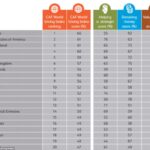There are a lot of articles, jokes, and memes about millennials that get shared on social media. Largely based on pejorative stereotypes, this content ranges from one- liners to long rants and will almost always guarantee likes, shares, and comments. Some of the most common grievances millennials are accused of include being self-obsessed, glued to their technological devices, and apathetic to the problems of the world at large. Many of these stereotypes have been debunked as myths.
Although when it comes to millennials in the workforce, the truth is it doesn’t matter what you think of their generation. The fact of the matter is, like them or not, millennials are flooding the workplace.
Have you posted for a job opening lately?
If you look through the applications and resumes you received chances are nearly all of them came from millennials. As of 2013, millennials comprised one-third of the United States population. Many have now gone to college, earned degrees, and they are filling the job market.
The real reason you have to hire millennials is that you actually don’t have any other choice.
What to Really Expect
Are Millennials Lazy?
The idea that millennials are lazy is simply not true. Millennial workers work hard if for no other reason than they need to prove themselves. Millennials know what people think about their generation. After all, they are the first generation that has been raised around technology as we know it. They are early adopters who embrace new platforms, of course they know the stereotypes about themselves.
Are Most Millennials Single?
Millennials tend to get married later in life. This common presumption about millennials is true. What that means for employers, however, is not necessarily a bad thing.
Since millennials often don’t have families, they are able to focus their time and energy on work. In fact, according to a 2014 report from the White House Council of Economic Advisors, many millennials are delaying getting married and starting a family precisely because they want to establish their career first.
As most of them were raised in households where both parents work, millennials are acutely aware of the challenges involved in balancing work and family. Most or them expect and prefer to focus exclusively on work first. The wedding and the baby carriage can come later, they’ve decided.
Do Millennials Want Participation Trophies?
The short answer to this question is: No. Millennials don’t care about participation trophies.
The idea that giving out participation trophies at childhood sporting events has made millennials entitled is popular, but honestly, kind of silly when you think about it.
After all, the equivalent a participation trophy at work isn’t a promotion or a raise, it’s a paycheck. As much as we hate to admit it, the fact is that every workplace has at any given time, employees who show up, do the bare minimum, and get a paycheck. It’s not like this started with millennials.
So, if they don’t want participation trophies, what do they want? Good question.
They Want More than Just a Job
Millennials don’t care about participation trophies because they want to do more than just show up when they come to work. Millennials do not want to merely endure their jobs.
Nearly one-third of millennials value “meaningful work” above “high pay.” They want to sincerely enjoy where they work. After all, they are willing to put all of their energy into their career. They simply want it to be worth it.
They want to get along with their co-workers. Since they are delaying marriage and family life, millennials are interested in forming friendships and positive interpersonal relationships in the workplace.
Company game night, thirsty Thursdays, and other types of fun, extracurricular activities help build these positive relationships. This doesn’t mean that millennials only want to work with their best friends. But they are less likely than previous generations to put up with a negative work environment caused by interpersonal tension and strife.
Finally, millennials want to give back at work. They are a philanthropic generation, even though their charitable giving looks significantly different than that of previous generations. Millennials want to connect with causes through more than just monetary donations.
They want to participate in hands-on community improvement activities. They want to volunteer. They want to make a difference in the world and they expect to work at companies that do too.
Conclusion
Say what you will about millennials, they are not going anywhere. It is estimated that by 2050, more than 50% of the workforce will millennials.
The good news is, that most of the negative stereotypes you have heard about them are wrong.
Millennials are adaptive, innovative, and driven workers who will most certainly transform the workplace. And to tell you the truth, we’re pretty excited about the future they will build.
{{cta(‘a67601ab-319d-467e-8100-a2ba0d006d8f’)}}



































































































































